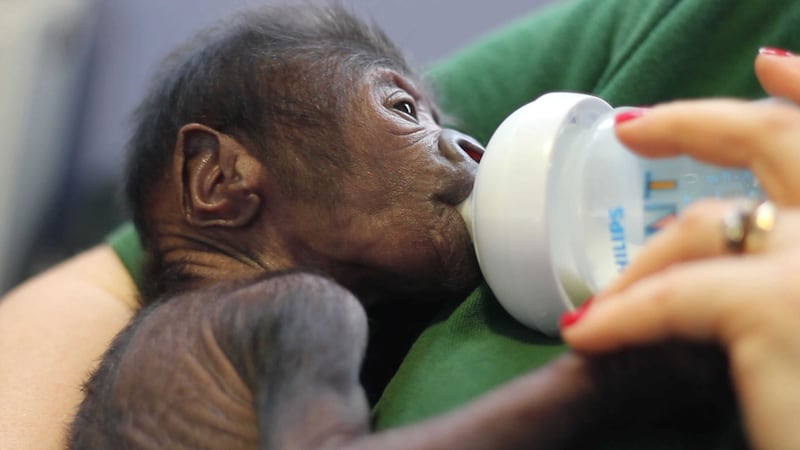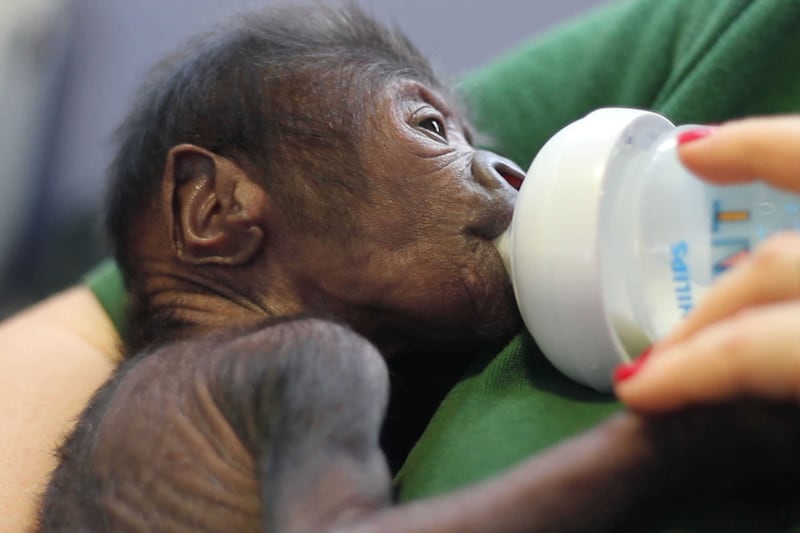A BABY gorilla has been born at Bristol Zoo following a rare and complex emergency caesarean section
The decision to induce the birth of the girl at Bristol Zoo Gardens was taken after her mother showed symptoms of potentially life-threatening pre-eclampsia.
The 11-day-old western lowland gorilla, who is yet to be named, weighs just over a kilo and is being watched round the clock by an experienced team of gorilla keepers.
Kera, her mother, is also being monitored closely by the keepers.
This baby gorilla was born via a very rare emergency caesarean at @BristolZooGdns: https://t.co/HySXHvOk14 https://t.co/9LR3wXDQlI
— Sky News (@SkyNews) February 23, 2016
There have only been a few gorilla C-sections in the world - most recently at San Diego Safari Park in 2014 - and it is thought to be the first in the UK.
John Partridge, senior curator of animals, said the baby gorilla - whose father is called Komale - was not yet on show to the public.
"The birth of any gorilla is a rare and exciting event but the birth of a baby gorilla by caesarean section is even more unusual," he said.
"It wasn't a decision that we took lightly - Kera was becoming quite poorly and we needed to act fast in order to give the best possible treatment to mother and baby and to avoid the possibility of losing the baby."
After being assessed by Bristol Zoo's team of in-house vets, treatment was provided by Professor David Cahill, a professor in reproductive medicine and medical education at Bristol University and gynaecologist at St Michael's Hospital.
Despite having delivered hundreds of babies by caesarean in his career, this was the first time Prof Cahill had delivered a baby gorilla by this procedure.
"Along with having my own children, this is probably one of the biggest achievements of my life and something I will certainly never forget," he said.
"I have since been back to visit Kera and the baby gorilla, it was wonderful to see them both doing so well."
Lynsey Bugg, curator of mammals, is one of the small team of keepers providing round the clock care for the infant.
She said: "The first few days were critical for the baby, it was vital that she was kept warm and began taking small amounts of formula milk.
"We started 'skin-to-skin' contact - a process used with human newborn babies - and she responded well to this and is getting stronger and more alert each day."
The baby needed help from vets after her birth but is now doing well & is being hand-reared by our amazing keepers. pic.twitter.com/vjCspOzlik
— Bristol Zoo Gardens (@BristolZooGdns) February 23, 2016





